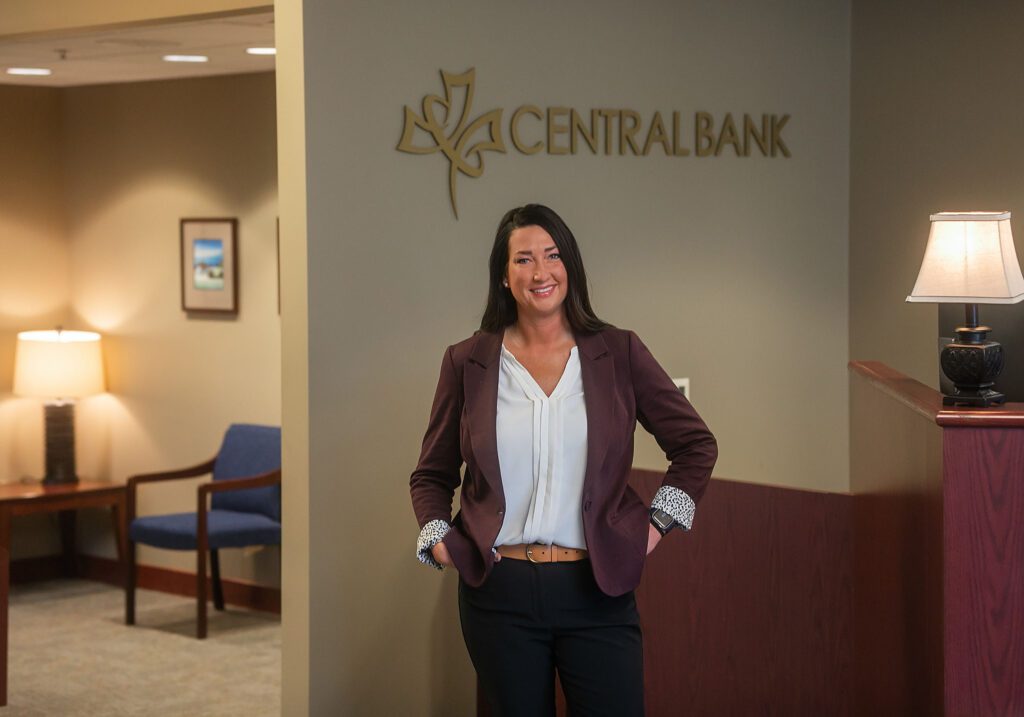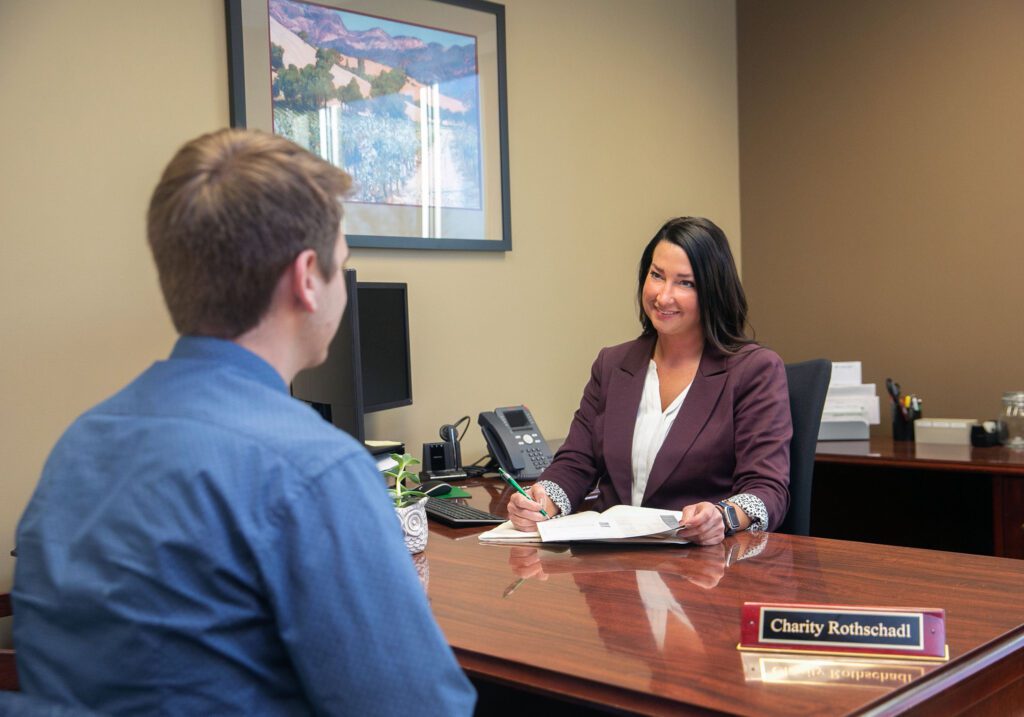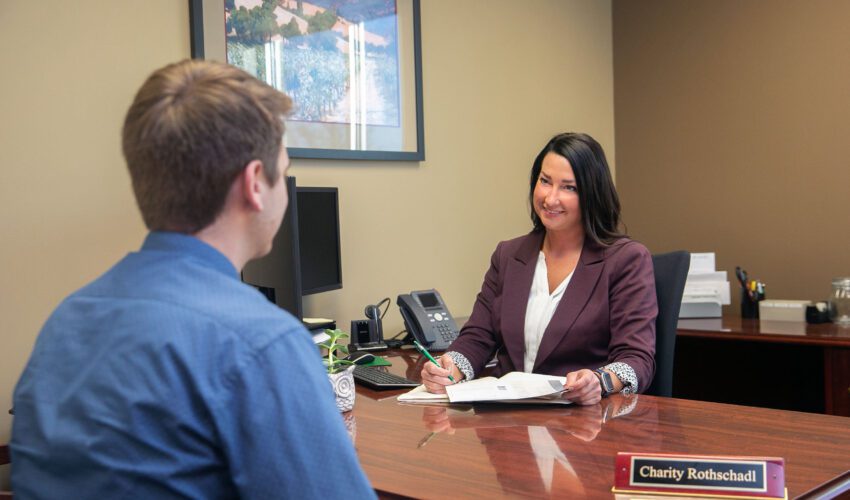‘Tis the season – not to be a victim of fraud by following these simple tips
Dec. 19, 2022
This paid piece is sponsored by Central Bank.
As predictably as the drop in temperature this time of year, cases of fraud for both individuals and businesses tend to go up.
“We typically see an increase in fraudulent activity around the holidays and into the new year,” said Charity Heaton, vice president, treasury management officer at Central Bank.
Her years of experience in the industry have taught her this particular holiday season might present extra risk for fraud.
“Not only does it ramp up this time of year, but we typically see additional fraud activity during times of economic shifts,” she said.
“Fraud can happen internally, within an organization, or it can involve external triggers. It’s a busy time of year for businesses and for families, and not everyone is as vigilant as they normally would be.”
Taking a few simple steps can help protect you and your business from becoming a victim.
Click carefully
Your email can be a front door for fraudsters, especially this time of year when online ordering might be taking you to sites you usually wouldn’t shop. Whenever in question, always contact the sender of the email directly to verify a link or attachment is safe before clicking.
“I recently received an email related to a credit card dispute, which I knew I hadn’t submitted,” Heaton said.
“And there’s the familiar email message saying your Amazon Prime won’t work if you don’t renew your membership. Don’t click through the email. Instead, go to the site itself. I received one of these messages, and to avoid possibly falling for the scam, I logged into my Amazon account and learned it wasn’t my renewal time. But it’s the holiday season, you’re in a rush, and you don’t want to lose access to your account – so it’s easy to fall for one of these scams.”
There are subtle signs an email isn’t legitimate, such as typos, spelling errors, poor grammar and changes to the organization’s name in the email address.
Use dual control
Dual control requires two individuals to complete business transactions. The idea is to have one person who consistently creates payments and a second person who can OK them. This blocks a single person – whether it’s a fraudster who has gained access to your accounts or an employee with bad intentions – from having full control of both payment initiations and approvals.
Imposters are everywhere
Here’s a scary one for businesses: deep fakes.
Let’s say you’re in charge of issuing payments for your employer and you get an email from someone appearing to be your boss. The email says something like: “We’re good to go with the project. Go ahead and send the funds to this account number.”
In even more extreme scenarios, a deep fake could impersonate someone’s voice or appear as that person in a video call.
“Ideally, you’d verify the request first by different means. If you get an email telling you to authorize a payment, you’d call your boss or the requestor. Or if you received the request by a phone call, you’d email for confirmation,” Heaton said. “Always call or email the phone number or email address in your records – never call a phone number or send an email to an address that was provided to you with the request.”
“Another important step to remember is to use dual control,” Heaton said. “You need an initiator and an approver.”
When large payments are involved, you’ll want to use even more verification methods.
More red flags: anytime someone requests a payment be kept confidential or if the beneficiary or payee is switched from a business to an individual.
Beware a sense of urgency
Scammers often create a sense of urgency and panic so their victims act without thinking. This play on emotions can include people posing as your family members or business partners needing money right away.
“Even if it’s someone you have a relationship with, always take a pause and reach out in a different manner to make sure it’s them first,” Heaton said. “The same caution applies when you send someone money through a service like Venmo, and they reach out to tell you their account information has changed. Confirm that through a different form of communication before resubmitting the payment.”
Tips to protect yourself and your business
Even with extra vigilance and proper protocols, there are additional tools to help safeguard you and your business against fraud:
ACH Debit Protection, Positive Pay
Central Bank strongly suggests business customers use ACH Debit Protection, which allows the bank or gives the customers the ability to stop any transactions that should not be debiting the account.
“We work with clients to put together a list of those with an approved relationship to automatically debit the account, as well as a dollar range that a transaction would typically involve,” Heaton said. “When ACH Debit Protection is in place and a transaction is attempted for a different amount or is duplicated, the debit is blocked and reviewed before it occurs.”
There’s also a tool called Positive Pay for checks.
“We work with our clients to provide details so that when a check is presented to Central Bank and the data doesn’t match, you get an alert to review the item for approval or rejection,” Heaton said.
Utilize your credit card
Heaton also encourages use of credit cards to help protect your assets.
“For working capital and certainly fraud and risk mitigation, we encourage businesses to utilize credit cards,” Heaton said. “The Central Bank credit card is backed by Visa, and you’re protected on your funds. It’s best to pay with your credit card whenever you can.”
Review your account activity and statements using online banking
Review your account activity frequently. If you discover any unauthorized transactions or suspect a check has been forged, notify the bank or your credit card provider immediately to begin the dispute process and prevent any potential loss.
Set up account alerts
Customers of Central Bank also have the ability to set proactive account alerts to their credit and debit card accounts to help flag fraud.
“If transactions over a certain dollar amount happen, you can set which alert types you’d like to have to proactively be alerted,” Heaton said.
Evaluate your insurance
It’s important businesses carry insurance to further protect against fraud.
“There is specific cybersecurity and fraud insurance, and our insurance division can help you with that,” Heaton said.
To learn more
Ready to learn more or take steps to protect yourself and your business against fraud? Visit with a lender at any Central Bank branch or click here: mycentral.bank.










